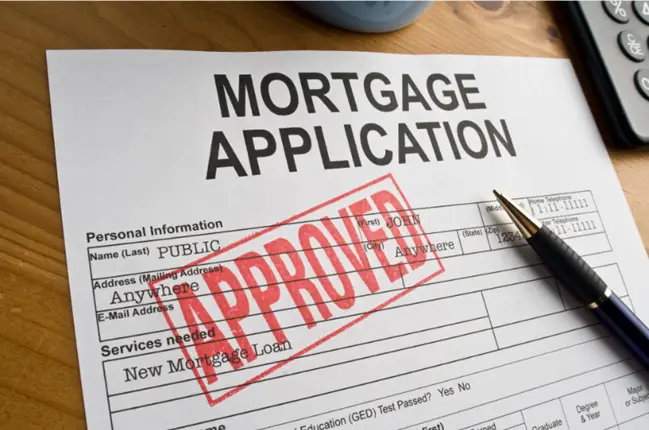
HOME LOAN APPROVALS | DOCUMENTS UNDERWRITERS REQUIRE
You may think you know everything there is to know about getting a home loan approval, but did you know that underwriters require a specific set of documents before giving their stamp of approval? These documents play a crucial role in the loan approval process, and without them, your dreams of owning a home could be put on hold. So, what exactly are these documents that underwriters require?
Well, let’s dive into the details and uncover what you need to gather to increase your chances of getting approved for a home loan.
Key Takeaways
– Credit score is a crucial factor in home loan approval.
– Providing necessary documents such as pay stubs, bank statements, tax returns, and identification is part of the pre-approval process.
– Factors like income verification, debt-to-income ratio, and employment history are considered for home loan approval.
– Exploring options like online lenders, mortgage brokers, and government-backed loans can help in finding the best home loan deal.
GETTING A LOAN FOR A HOUSE – HOME LOAN APPROVALS

To get a loan for a house, you’ll need to gather and provide the necessary documents for home loan approvals. The first step is to understand the home loan eligibility criteria. Lenders will consider factors such as your credit score, income, and employment history to assess your ability to repay the loan.
A good credit score is crucial as it demonstrates your financial responsibility and reliability. It’s also important to understand the types of home loans available, such as fixed-rate or adjustable-rate mortgages. To improve your chances of loan approval, you can take steps like paying off existing debts and saving for a larger down payment.
Income verification is a critical aspect of the loan approval process, as lenders need assurance that you have a stable income to meet your repayment obligations. The required documentation includes proof of income, bank statements, and tax returns.
Factors such as market conditions and the loan-to-value ratio can impact home loan interest rates. Additionally, there are application fees and charges that you need to be aware of. It’s essential to understand the different repayment options available, such as monthly installments or bi-weekly payments.
Lastly, common reasons for home loan rejection include insufficient income, high levels of debt, or a poor credit history.
HOME LOAN PRE-APPROVAL PROCESS
Now let’s take a closer look at how the home loan pre-approval process works. When applying for a home loan, there are several required documents that you’ll need to provide.
These documents may include pay stubs, bank statements, tax returns, and identification documents. The lender will use these documents to verify your income, assess your credit score, and calculate your debt-to-income ratio.
Your employment history will also be reviewed to ensure stability and consistency of income. Additionally, a property appraisal will be conducted to determine its value. This is important because it helps the lender determine the loan to value ratio, which is the percentage of the loan amount compared to the appraised value of the property.
Furthermore, down payment requirements will be discussed during the pre-approval process. Depending on the loan program and your financial situation, you may need to provide a certain amount of money upfront.
Mortgage insurance may also be required if your down payment is less than 20% of the home’s purchase price. This insurance protects the lender in case of default.
Lastly, the pre-approval process will provide you with a timeline for loan approval. This timeline can vary depending on the lender and the complexity of your financial situation. It’s important to understand this timeline to ensure a smooth and timely closing process.
HOW TO GET A HOME MORTGAGE

Getting a home mortgage requires gathering the necessary documents and meeting the lender’s requirements. To start the mortgage application process, you need to qualify for a home loan. Lenders will review your income, employment history, and credit score to determine if you meet their criteria.
It’s important to understand interest rates and how they can affect your monthly payments. There are different types of home mortgages available, such as fixed-rate and adjustable-rate mortgages, so it’s essential to choose the one that suits your financial situation best.
Lenders also have credit score requirements, so make sure your credit score is in good shape before applying. Additionally, you should consider your down payment options. A larger down payment can lower your monthly payments and increase your chances of approval.
It’s crucial to understand the difference between mortgage prequalification and preapproval. Working with a mortgage broker can help you navigate the process and find the best loan options. Avoid common home loan mistakes, such as taking on additional debt before closing, and focus on improving your chances of approval by paying bills on time and reducing existing debt.
GETTING APPROVED FOR A HOME LOAN

Ensure that you meet the lender’s criteria and gather all the necessary documents to get approved for a home loan. To increase your chances of approval, it’s important to understand the key factors that lenders consider when evaluating your application.
Firstly, credit requirements are an essential aspect. Lenders typically review your credit score and credit history to assess your creditworthiness. A higher credit score demonstrates responsible credit management and improves your chances of approval.
Income verification is another crucial factor. Lenders will request documents such as pay stubs, tax returns, and bank statements to confirm your income. This helps them determine if you have a stable source of income to afford the mortgage payments.
Additionally, the debt-to-income ratio is important. Lenders calculate this ratio by dividing your monthly debt obligations by your gross monthly income. A lower ratio indicates a healthier financial situation and enhances your approval prospects.
Down payment options and loan-to-value ratio are also considered. A larger down payment can reduce the loan amount, thereby improving your loan-to-value ratio. This ratio compares the loan amount to the property’s appraised value. A lower loan-to-value ratio is generally preferred by lenders.
Your employment history is significant as well. Lenders typically require a stable employment history to ensure your ability to repay the loan.
It is important to note that your credit score can be impacted during the loan approval process. Avoid making any major credit decisions or taking on additional debt until the loan is closed.
Make sure to gather the necessary documentation, such as identification, income verification, and asset statements, to provide to the lender. This will help streamline the application process and expedite loan approval.
Consider getting pre-qualified for a mortgage before starting the home buying process. This will give you an estimate of the loan amount you may qualify for, helping you set realistic expectations.
Lastly, the loan approval timeline can vary depending on various factors such as the lender’s workload and the complexity of your application. It’s important to stay in touch with your lender and provide any additional requested documents promptly to avoid delays.
BEST PLACE TO GET A HOME LOAN APPROVAL
Looking for the best place to get approved for a home loan? You have several options to consider. One option is online lenders, who offer convenience and a streamlined application process. They often have competitive interest rates and may have lower credit score requirements compared to traditional lenders. Another option is to work with a mortgage broker who can connect you with multiple lenders and help you find the best loan terms for your situation.
Government-backed loans, such as those offered by the Federal Housing Administration (FHA) or the Department of Veterans Affairs (VA), can be a great choice for those with lower credit scores or smaller down payments. It’s also important to compare interest rates from different lenders to ensure you’re getting the best deal. Local credit unions may offer more personalized service and favorable terms for their members.
Non-traditional lenders, such as peer-to-peer lending platforms, may provide alternative options for those who don’t meet traditional criteria.
Frequently Asked Questions
What Is the Minimum Credit Score Required to Get Approved for a Home Loan?
To get approved for a home loan, you’ll need a minimum credit score. Factors like creditworthiness, loan options for low scores, and building credit play a role. Seek advice to improve your credit for better loan terms.
Can I Use a Cosigner to Increase My Chances of Getting Approved for a Home Loan?
Using a cosigner can increase your chances of home loan approval. Ensure they meet eligibility requirements, understand their responsibilities, and have a suitable credit history. A cosigner may impact interest rates and be liable for the loan. Their income must also meet requirements.
How Much of a Down Payment Do I Need to Qualify for a Home Loan?
To qualify for a home loan, you’ll need to consider various factors such as down payment options, income requirements, loan to value ratio, mortgage insurance, first time homebuyer programs, VA loan eligibility, FHA loan requirements, conventional loan guidelines, down payment assistance programs, and jumbo loan qualifications.
Are There Any Specific Employment Requirements to Be Eligible for a Home Loan?
To be eligible for a home loan, underwriters typically require income verification, stable employment, a favorable debt to income ratio, and a solid employment history. This applies to self-employed, commission-based, part-time, freelance, and recent job change individuals, as well as those with seasonal employment, multiple jobs, or unemployment history.
Can I Get a Home Loan if I Have a Previous Bankruptcy or Foreclosure on My Credit History?
Yes, you can still get a home loan even if you have a previous bankruptcy or foreclosure on your credit history. However, it may impact your ability to qualify, and you may need to explore alternative mortgage options.
Conclusion
So, if you’re looking to get a home loan approval, make sure you have all the necessary documents ready.
The pre-approval process is essential, and it’s important to know how to navigate the home mortgage process.
Getting approved for a home loan can be a bit daunting, but with the right information and preparation, it can be a smooth process.
And remember, finding the best place to get a home loan approval is crucial for a successful home buying journey.
Dedicated Probate Experts
Our specialized team possesses deep expertise in the probate sector. We navigate the complexities of the Probate Court with ease and work in tandem with probate lawyers to facilitate seamless transactions. Our comprehensive services are designed to meticulously handle every detail, tailoring solutions to the unique requirements of estate, conservatorship, or trust real estate sales.
We cater to a diverse clientele, many of whom reside beyond Broward County and even outside Florida. Our ability to provide exceptional service remotely means that in-person meetings are often unnecessary, ensuring convenience and efficiency for all our clients.
Real Estate Broker | REALTOR®
Albert Asensio is a licensed Florida Real Estate Broker with a certification in probate and trust sales, embodying a core belief that every client deserves 100% honesty and transparency. Since January 2000, Albert has led a successful real estate business, earning a reputation for speaking sincerely and is proficient within his profession. As a Broker Associate at Lokation Realty, he leverages his specialized probate team to streamline the probate process, alleviating stress for executors and beneficiaries alike, ensuring estate management adheres to legal standards, and safeguarding the interests of all parties involved.

